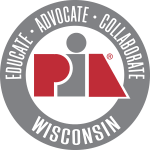Common COVID-19 P&C Coverage Questions Addressed*

Business Interruption Insurance: Business interruption normally requires physical damage caused by a covered peril to impede the operation of a business and cause a loss of income. Contingent business interruption insurance would also require a physical loss by a covered peril to a supplier’s property. However, courts in some jurisdictions have ruled that income loss is a covered “property loss,” despite insuring agreement language that seems contrary. If a civil authority issues a quarantine order that prevents workers from coming to work, that is also unlikely to be covered, because the element of property damage is still missing. If a factory shuts down because infected workers have contaminated equipment, that could potentially be covered, but there could also be exclusions that apply. Even if contaminated equipment/premises is covered as a property loss, there will be a question of the duration of the lost income claim. An unendorsed policy will likely only cover loss of income during the period it takes to decontaminate the premises.
Risk Management Magazine article
Workers Compensation: To be covered under Workers Comp, a coronavirus infection would have to fall under the definition of “occupational disease.” Health care workers are likely to be covered by WC, because the very nature of their job puts them more at risk for infection. For office workers, coronavirus is likely not compensable because their job does not put them at greater risk than the general public. For public-facing employees who come into contact with large numbers of people daily, there is an argument to be made. Compensation may or may not be allowed. In general, proving causation arising out of employment will become more difficult as COVID-19 becomes more widespread.
IRMI article
“Occupational Disease” definition
Employees who normally work in an office, but begin working from home due to COVID-19, may face a higher risk of injury. A makeshift workstation with inferior ergonomics could impact their health. Distractions they wouldn’t face at the office, such as pets, family members, doorbells, skateboards, etc., may contribute to an injury that would not have happened at the office.
Trade Credit Insurance: Less than 5 percent of U.S. firms have trade credit insurance, but those who do may find coverage when large customers can’t pay their bills.
https://www.insurancejournal.com/news/international/2020/03/12/560940.htm
Commercial General Liability: Overall, GL coverage is unlikely but not out of the question. If there is a positive test, proving COVID-19 exposure, there could be coverage depending upon the details of the situation and the policy. Did management ask/allow a sick employee to come to work, knowing they might expose others to COVID-19? Will a court find that the illness resulted from an “occurrence” or “accident,” as required by the insuring agreement? These questions really can’t be answered with any certainty. However, when there is a reasonable potential for coverage, the carrier will have a duty to defend. Agents can check the policy for a communicable disease exclusion, which seems likely to cause a denial of coverage. Other exclusions may be interpreted as excluding coverage, possibly “expected or intended injury” or pollution exclusions, as well. Agents should refer these questions/claims to the carrier and avoid making promises to clients regarding coverages.
Special Event Policies: Special event policies are known as “non-standard” policies because they are all different. Typically, a basic policy is a liability policy meant to protect the event organizer in case someone is injured at the event. To be covered for loss of income due to cancellation, an endorsement or a separate cancellation insurance policy is usually required. That cancellation endorsement or policy is intended to cover cancellation due to events beyond the control of the policyholder, such as an act of God that damages the venue. If a policyholder chooses to cancel an event due to low attendance or to prevent the spread of disease, that is unlikely to be covered. An “all-cause” event cancellation policy or a rider for communicable diseases may grant coverage, but these are uncommon. Some policies have specific exclusions for “communicable disease” or “other biological risks or microorganisms.” If a client doesn’t already have an event policy that covers cancellations, it’s too late. Carriers have temporarily halted the sale of such policies or have already added exclusions for COVID-19.
Travel Insurance: Many travel insurance companies are currently (temporarily, we hope) not accepting new customers. Many are allowing existing policies to be modified, but not allowing new policies to be written. Travel insurance policies normally exclude cancellations of flights by airlines and cancellations of trips because by a traveler who is not actually ill. If a traveler actually contracts COVID-19 or is quarantined, that would be covered. Only “cancel for any reason” policies will cover all of these trip cancellation scenarios.
https://www.propertycasualty360.com/2020/02/25/will-travel-insurance-cover-coronavirus/
Umbrella Insurance: If an underlying policy, such as a CGL policy, provides coverage, an umbrella policy is likely to provide coverage as well. In regard to coronavirus, umbrella coverage is unlikely because coverage by the underlying CGL is unlikely. In rare cases, there may be an umbrella policy that does not have an exclusion that the underlying policy has. It is worth checking the umbrella policy to see if it might provide coverage that is excluded by the underlying policy.
Two instructors at Florida Insurance School Continuing Education, one of PIAW’s business partners, examine commercial lines COVID-19 coverage questions in this one-hour video presentation:
[su_youtube_advanced url=”https://www.youtube.com/watch?v=zth3rpQ6ZDU”]
How to advise commercial lines clients regarding coronavirus
* Nothing in this document should be construed as legal advice. PIA of Wisconsin has compiled this information only as a convenient resource for its members.
